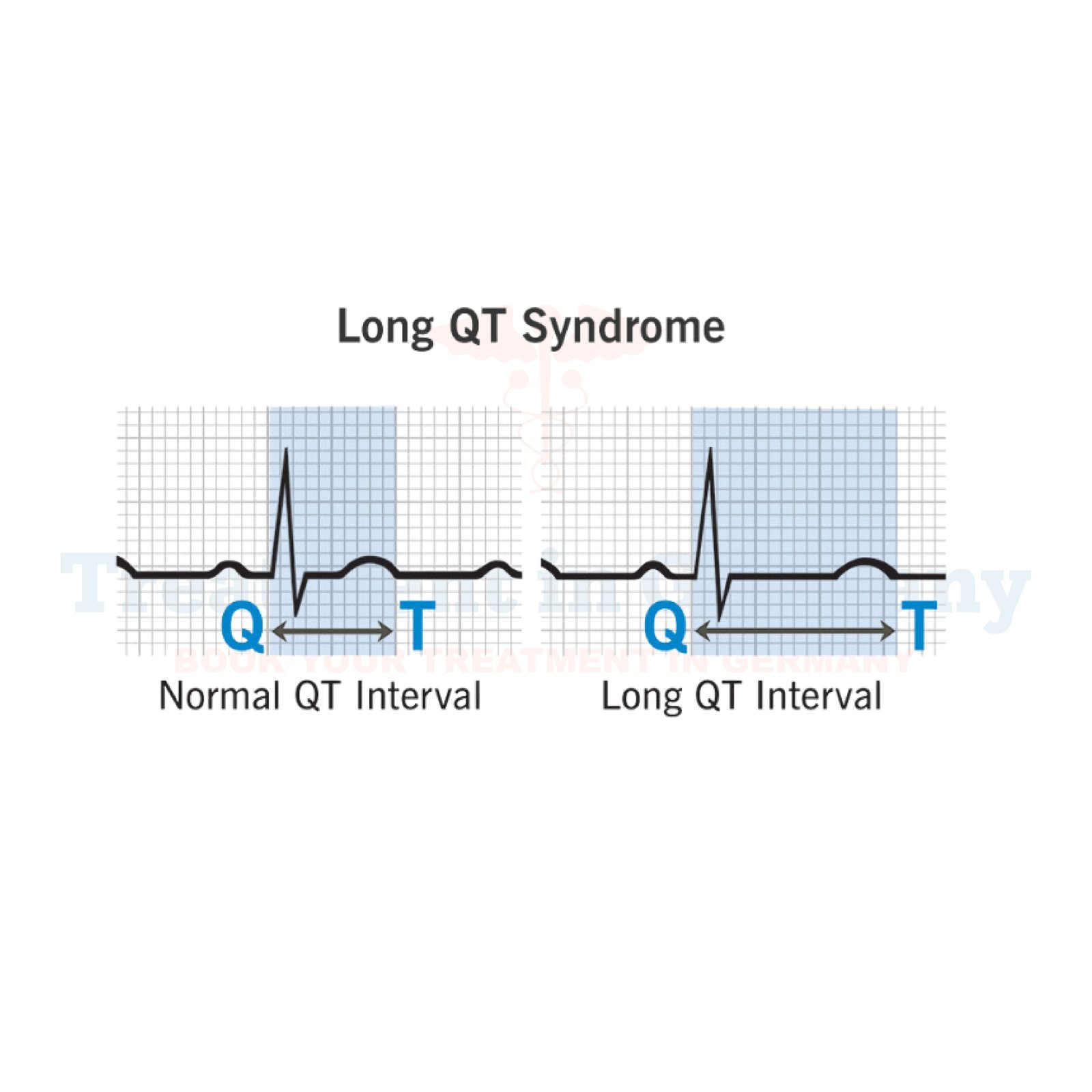What is Long QT Syndrome?
Long QT Syndrome (LQTS) is a heart condition characterized by an abnormality in the electrical system of the heart, specifically affecting the heart's QT interval on an electrocardiogram (ECG).
The QT interval represents the time it takes for the heart's electrical system to recharge between beats. In individuals with LQTS, this interval is prolonged, which can lead to dangerous heart rhythms, known as arrhythmias.
Side Effects of Long QT Syndrome
The most concerning side effect of Long QT Syndrome is the risk of developing potentially life-threatening arrhythmias, such as Torsades de Pointes.
These arrhythmias can cause fainting (syncope), seizures, and in severe cases, sudden cardiac arrest or sudden death. Symptoms can be triggered by physical exertion, emotional stress, or certain medications.
How is Long QT Syndrome Diagnosed?
Diagnosing Long QT Syndrome involves several steps:
- Clinical Evaluation: Your doctor will review your medical history and symptoms, as well as conduct a physical examination.
- Electrocardiogram (ECG): This non-invasive test measures the electrical activity of your heart and can detect abnormalities in the QT interval.
- Genetic Testing: Since Long QT Syndrome can be hereditary, genetic testing may be recommended to identify specific genetic mutations associated with the condition.
- Exercise Stress Test: This test evaluates how your heart responds to physical activity, which can sometimes reveal abnormalities not present during a resting ECG.
Potential Treatment of Long QT Syndrome
Treatment for Long QT Syndrome aims to reduce the risk of arrhythmias and manage symptoms. Treatment options include:
- Lifestyle Modifications: Avoiding triggers such as strenuous exercise, emotional stress, and certain medications known to prolong the QT interval.
- Medications: Beta-blockers are commonly prescribed to help stabilize the heart's electrical activity and reduce the risk of arrhythmias.
- Implantable Cardioverter-Defibrillator (ICD): In severe cases or for those at high risk of sudden cardiac arrest, an ICD may be implanted to monitor heart rhythm and deliver a shock if a dangerous arrhythmia occurs.
- Genetic Counseling: For individuals with a family history of Long QT Syndrome, genetic counseling can help assess the risk of passing the condition to future generations and provide guidance on family planning.
- Regular Follow-Up: Monitoring of symptoms and periodic ECGs are essential to assess the effectiveness of treatment and adjust management as needed.
👉 Contact us for further information and receive a complimentary consultation.


.webp)
 (1).webp)

.webp)
 (1).webp)


.webp)
 (1).webp)

.webp)
 (1).webp)
